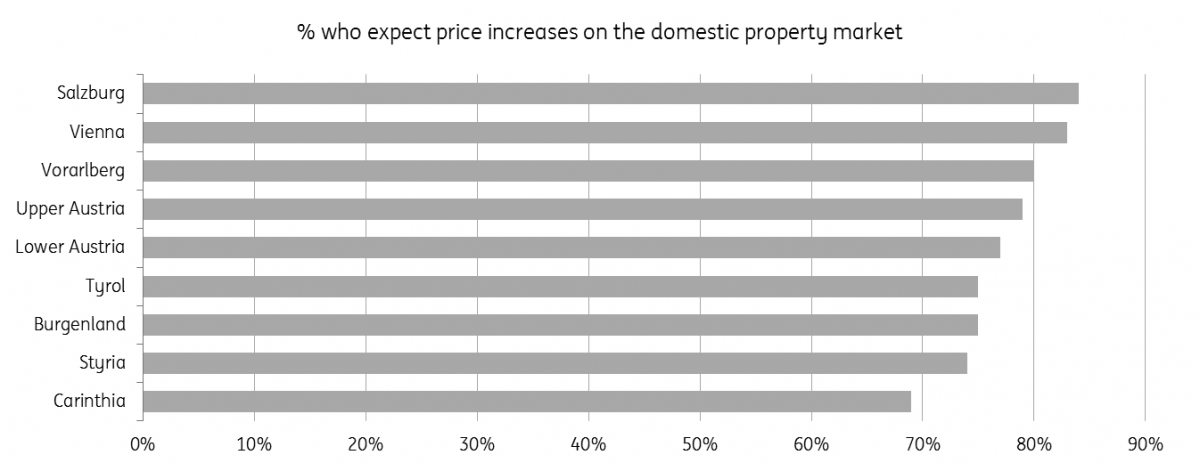Austria: Economy slows but stays above eurozone average
Even though the economy is expanding nicely, home ownership has become an issue for many Austrians
The Austrian economy grew by 0.5% quarter-on-quarter in the third quarter according to a first flash estimate from the Austrian Institute of Economic Research, 0.3 percentage points above the eurozone GDP growth rate. The more volatile Eurostat measure confirms the positive picture, coming in at 0.4% quarter-on-quarter. Second-quarter growth was revised down a notch to 0.6% from 0.7% (Eurostat: 0.3%). While momentum continues to decline, overall, economic growth remains favourable with the economy remaining on track to grow 2.8% year-on-year.
Third-quarter growth continues to be well-balanced. Domestic demand remained strong and foreign trade contributed positively to growth. While trade tensions and political uncertainty are a threat to the Austrian economy, Austria's export industry is mainly focused on Europe. Around 80% of domestic exports go to this region. Yet, with 6.8% of exports going to the US, a deterioration in demand, sanctions or tariffs could eventually weigh on Austria’s economy.
Gross fixed capital formation (equipment and construction investments) also continued to grow favourably with strength coming from construction investment (+0.4%). However, when it comes to private housing, 78% of Austrians expect property prices in their neighbourhood to increase further within the next year, according to a representative ING survey. Almost no one believes that property prices will decline. There is stress on real estate markets, particularly in Salzburg and Vienna. Indeed, some 84% of Salzburg's citizens and 83% of those living in Vienna believe that housing will be even more expensive, starting from an already very high base, with 60% of all Austrians stating that housing is already expensive. The situation in Carinthia is a bit more relaxed, but here too, 69% expect price increases.
Expensive properties

The desire to own property is generally high; only 19% of potential first-time buyers say that they are not interested in owning a home or apartment. But newcomers are particularly hard hit by price developments. More than two thirds (67%) of Austrians believe that purchasing real estate has become increasingly difficult for young people or those eager to buy. This doesn’t bode well for future real estate ownership. Austria has the second-lowest ownership rate in the EU, with only Germany having a lower rate.
Housing concerns aside, GDP growth should remain favourable for next year as a tax deduction for families kicks in. The “Family Bonus Plus” reduces the tax burden by up to €1,500 per child per year. While this will not be enough to durably strengthen home ownership, it is going to support consumption and thereby economic growth. With expected GDP growth of 2.2% year-over-year in 2019, the Austrian economy should remain comfortably above the eurozone average.